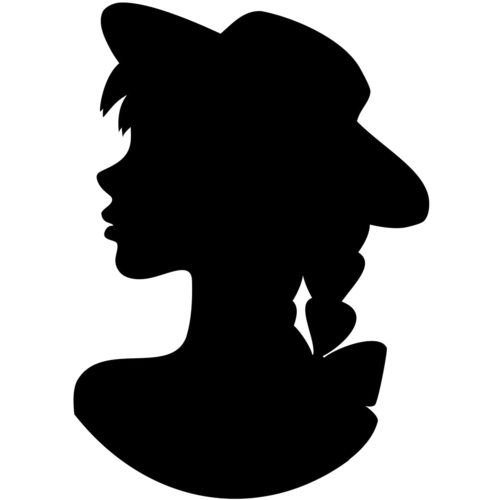Special terms in Anne of Green Gables are sometimes hard to understand. This glossary will help clarify the meanings of Victorian and Edwardian era words as well as other terms which might not be recognized by the contemporary readers.
A[]
B[]
- Brick can be slang meaning someone supportive of someone.
- Example: You're a brick.
- Brocade means a heavy and luxurious velvet fabric.
- Brown often means tan. Paul and Shirley had brown skin.
C[]
- Cassandra means somebody whose warnings of impending disaster are ignored.
- Cooky is an alternate spelling of the word cookie. Also spelled cookey.
- Cotton warp is a cotton yarn used for weaving.
D[]
- Dinner referred to the noon meal in the Victorian era, a result of French influence on British Canada. Some modern Canadians refer to dinner as evening meal like Americans, but regionally, especially on the East coast, dinner still means the midday meal.
E[]
F[]
- Feather tick is a mattress made of feathers that requires the feathers to be changed occasionally.
- Fickle means indecisive. Marilla used this word to describe Anne.
- Fine feathers comes from the saying "Fine feathers make fine birds", and means that if you dress well, people think that you yourself look good, when it may be just your outfit.
- "It's the dress, dear. Fine feathers."
- —Anne of the Island (Chapter 26: Enter Christine)[src]
- "It's the new hat, I expect, dear. Fine feathers, you know."
- —Anne of Ingleside (Chapter 34)[src]
- Fortify comes from saying "Come and fortify with us", and means to eat and have a meal.
G[]
- Grits was the nickname for the members and supporters of the Canadian Liberal Party.
H[]
- Handle is slang meaning someone's name.
- "Now, what are your handles?"
- —Anne of the Island (Chapter 4: April's Lady)[src]
- Homely means not good-looking. This word was used to describe Anne several times in the first book.
- "She's terrible skinny and homely, Marilla."
- —Anne of Green Gables (Chapter 9: Mrs. Rachel Lynde is Properly Horrified)[src]
I[]
- Ipecac is a syrup obtained from the roots of a South American plant Carapichea ipecacuanha. It is used to treat croup.
J[]
K[]
L[]
- Lick the stuffing means to beat someone physically. Lick in the Victorian era often meant to both to lick with the tongue and to give a beating. Davy Keith and Jacob Donnell both used this term as lick with the tongue and give a beating respectively, the former using both terms.
M[]
- Maritimes referred to the eastern side of Canada, near the ocean.
- Monster Mass Meeting was the 19-century term used for a political gathering.
N[]
O[]
P[]
- Patchwork is a technique of stitching pieces of fabric of different patterns, colors or shapes in order to create a larger piece, such as blanket.
- Plebian means common or vulgar.
- "The boy has such plebian tastes, Miss Shirley."
- —Anne of Avonlea (Chapter 5: A Full-fledged Schoolma'am)[src]
- Prunes and prisms mouth means a pleasant smile. This was used to describe Dora's lady-like and sweet smile. The phrase is used allusively to designate a prim and affected speech, look, or manner.
- "Dora's nose was straight, Davy's was a positive snub; Dora had a 'prunes and prisms' mouth, Davy's was all smiles; and besides, he had a dimple in one cheek and none in the other, which gave him a dear, comical, lopsided look when he laughed."
- —Anne of Avonlea (Chapter 8: Marilla Adopts Twins)[src]
- Premier refers to the Canadian Prime Minister.
- Providential means caused by the act of God.
- Put on airs means to impress someone in a pretentious way.
- Putting one's oar in means to involve yourself in someone else's business. Matthew promised Marilla he wouldn't put his oar in the upbringing of Anne. In other words, he promised to mind his own business.
Q[]
R[]
- Russet is a special type of apples.
S[]
- Scotch fiddle means a rash.
- Strawberry apple is a special type of apples.
- Supper referred to evening meal in the Victorian era, a result of French influence on British Canada. Modern Canadians generally use dinner in place of supper to mean evening meal, while understanding both.
T[]
- Tories is the nickname of the Canadian Conservative Party.
- Tow-coloured means a very light yellow or blonde colour, like the colour of hay. From Wisegeekcom: "Certain fibrous plants such as flax or hemp can be woven into cloth, but only after the fibers have been painstakingly combed out and twisted into a usable thread. Part of the combing process yields a tousled mass of light yellow fiber known as tow. Because these pale and tangled fibers resemble fine blond human hair, the term tow head is often applied to natural blondes, especially young children." It was used to describe Mary Vance's hair.
- "She had two braids of lank, thick, tow-coloured hair and very odd eyes – 'white eyes', the manse children thought, as she stared at them half defiantly, half piteously."
- —Rainbow Valley (Chapter 5: The Advent of Mary Vance.)[src]
- Trousseau is a collection of bridal clothing and linens.
U[]
- Ungainly means clumsy.
- Note:Despite the word being the opposite of gainly, there is no such word as gainly.
- "... he was an odd-looking personage, with an ungainly figure and long iron-grey hair that reached his shoulders, and a full, soft brown beard which he had worn ever since he was twenty."
- —Anne of Green Gables (Chapter 2: Matthew Cuthbert is Surprised)[src]
V[]
- Violet is a shade of purple colour.
W[]
- Waterloo Stove was a distinctive style of wood stove or coal-burning stove popular in the Maritimes. "Old-fashioned", probably dating from the 1860s or 1870s, it was all black without chrome or a white enamel rim.
